
New corporate and brand guidelines
In 2019, we focused on restructuring our company and developed a new corporate and brand guideline that laid the foundation for a sustainable company. For the analysis of a viable concept, we used the support of the German Institute for Marketing. Under the guidance of the experienced DIM team, we conducted workshops, surveys and analyses with staff and customers. We reviewed results and established a communication concept that always included all stakeholders in the processes. Thus ensuring a continuous improvement process to this day.
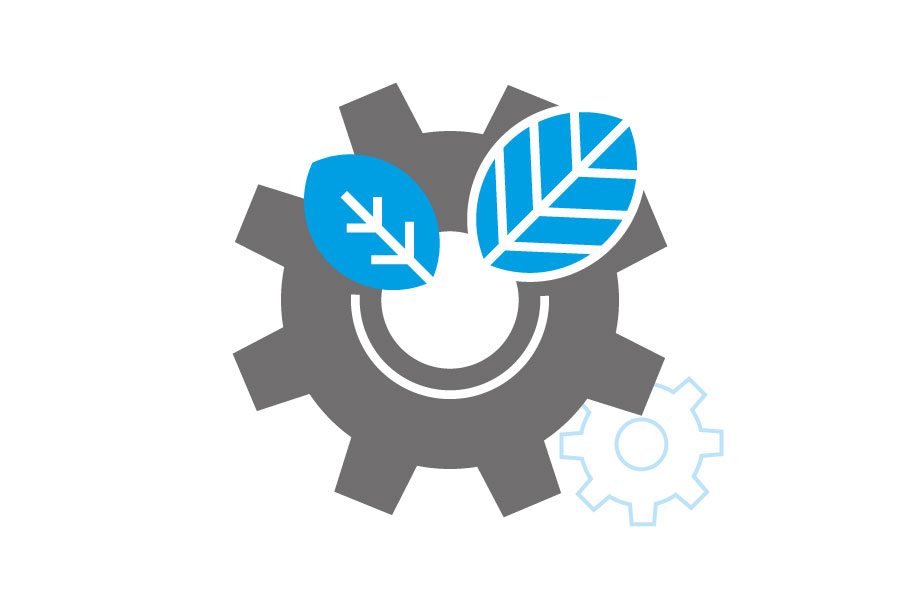
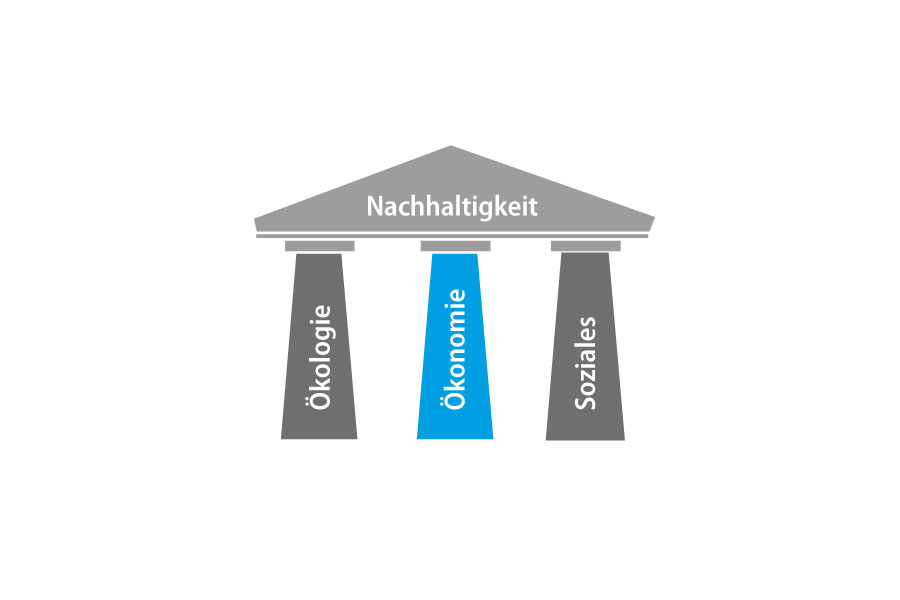
The three-pillar principle of sustainability
In 2019, we started to complement and build on the basic framework to design a roadmap that will allow our company to be sustainable, economically strong and socially just in equal measure. We are as committed to the three-pillar principle of sustainability as we are to the 17 global Sustainable Development Goals of the 2030 Agenda.
Quality: The be-all and end-all
We have maintained a professional quality and risk management system for several years and test according to AQL Level II 2.5/4.0.
With our quality and risk management:
- we ensure the quality of our products in terms of workmanship and materials;
- we ensure all relevant business processes and improve them;
- we comply with the laws, directives, standards, and regulations regarding the ingredients of our products in terms of marketability. As part of the REACH regulation, we carry out regular tests on our products.
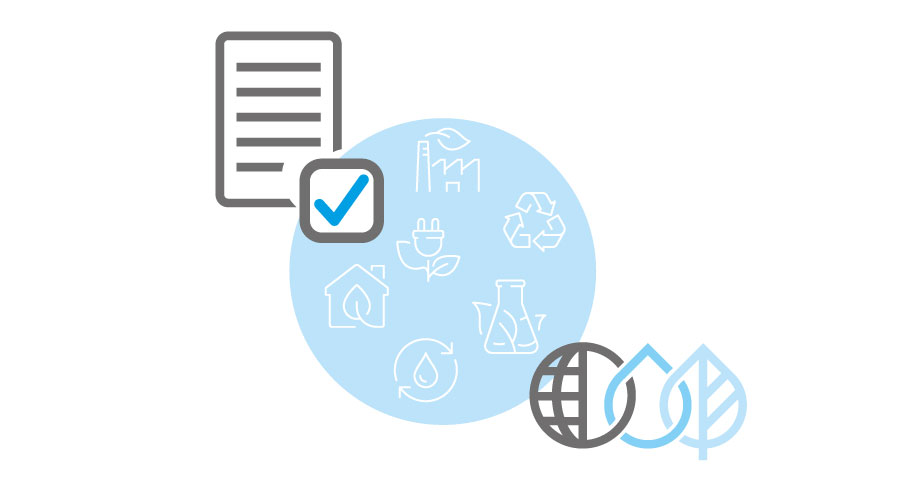
What is REFLECTS® doing to qualify?
REFLECTS®-News:
Nomination for the German Sustainability Award
We have been nominated for the German Sustainability Award in the category of office and promotional items without application in 2023. The expert juries identified and awarded companies considered pioneers of sustainable transformation in their respective industries. The competition is based on AI-supported research, 100 industry and expert juries and a proprietary scoring system.
The 20 criteria of the DNK report:
- Strategy
- Materiality
- Goals
- Depth of the value chain
- Responsibility
- Rules and processes
- Control
- Incentive systems
- Stakeholder participation
- Innovation and product management
- Use of natural resources
- Resource management
- Climate-relevant emissions
- Workers’ rights
- Equal opportunities
- Qualification
- Human rights
- Community
- Political influence
- Conduct in compliance with the law and all applicable directives
The reporting is also based on a so-called performance indicator set (here: GRI). The term “performance indicator” refers to various metrics that companies can use to measure their sustainability performance from a qualitative or quantitative standpoint.
REFLECTS GmbH has initially provided information for the year 2021, and will continue reporting at suitable intervals. This is because, by doing so, we ensure the highest possible level of transparency with regard to sustainable action.
The report, which is designated as a so-called “DNK declaration”, is published on the page of the German Sustainability Code in the company database.

What does Ecoprofit® stand for?
Ecoprofit® stands for "Ecological Project for Integrated Environmental Technology". It is a cooperation project between municipalities and local businesses that is intended to reduce operating costs while saving natural resources such as water and energy.
The project was developed in Graz in the early 1990s and quickly spread to other countries. In Germany, more than 2000 businesses have now taken part in Ecoprofit® and afterwards formed active networks that maintain a dialogue even beyond the Ecoprofit® certification year.
Award as Ecoprofit® company
The Ecoprofit year at REFLECTS®, which ended with an audit by a team of experts and the successful award as an Ökoprofit company, included numerous individual consultations by an expert, the determination of the status quo and all relevant KPIs, the formation of an environmental team, as well as workshops on the topics:
anchoring the idea of environmental precaution in the company
- employee motivation and stakeholder involvement
- energy supply
- green IT
- biodiversity
- purchasing
- change processes in operations
- use of the Ecocockpit of the NRW Efficiency Agency to draw up CO2e balances
- climate change
- mobility
The centrepiece here was an environmental program that documented changes within the company. Of the originally planned 63 measures, a large part has already been successfully implemented. These measures are complemented annually by additional projects, as the work does not stop but continues to evolve.
Socially competent - onboarding, vocational training and development, stakeholder care
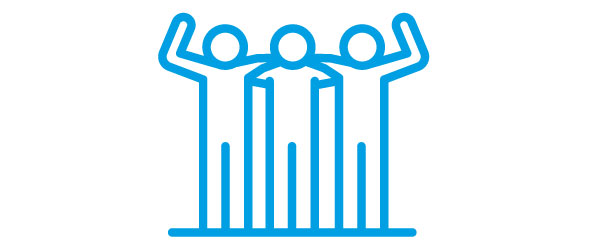
The health and well-being of our employees, customers and suppliers are important to us. We support employees with onboarding, vocational training and development programs, as well as with health measures in the workplace. Fair wages and equal opportunities go without saying. We also pay close attention to the greatest possible flexibility for parents. We are also involved within the region and make our contribution to the common good by helping the less fortunate through donations. Our mission statement on sustainability serves as a supporting source of orientation and starting point for our employees’ actions in all areas of the company. At a regular jour fixe within the company, employees are always kept up to date on all REFLECTS matters. With environmental questions, they can contact the environmental team directly via an internal e-mail address and submit their own proposals.
As a family-run, globally active company, we also think globally. For example, we explicitly include employees in Asia in our efforts. This means that we pay attention to the working conditions of our long-term partners. We have been very fortunate to work in partnership with our partner REFLECTS® Hong Kong for over 20 years. This allows us to take a close look at the working conditions of our production partners. We are also members of amfori BSCI and SEDEX.
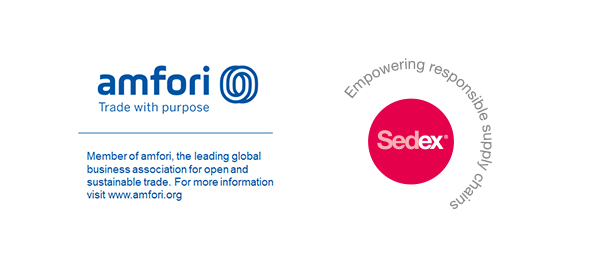
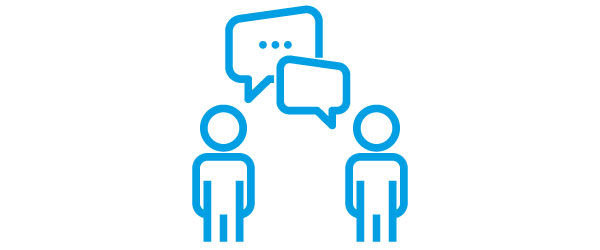
Transparency vis-a-vis our customers is important to us. We always include feedback from the market in our considerations. Regular publications in industry publications, on social media channels and on the website, as well as expert news, ensure the highest level of information.
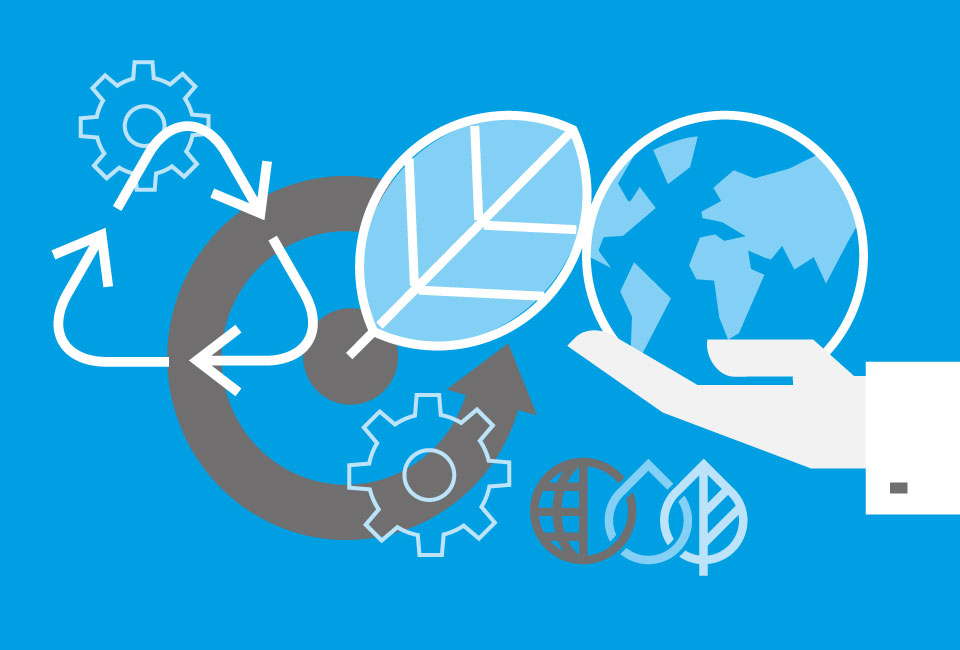
Our solutions, following the principle:Avoid - Reduce - Compensate
Our environmental policy and the concrete solutions consistently follow the principle: Avoid - Reduce - Compensate. To avoid CO2e emissions, we have been using electricity from renewable sources for two years. As part of our efforts to reduce emissions, we have taken measures for both our site and our products, including the construction of green roofs, packing-on-demand for selected products, new packaging concepts, the use of more sustainable materials and many other methods. If our customers wish to offset remaining CO2e emissions from product purchases, we offer on-demand compensation and investment in a wind power project in Madhya Pradesh, India.
Already checked?Check how sustainable your promotional products are.
Level 1:
Is the product high quality? Can my advertising message be transported without losses and in a value-added manner?
Level 2:
Is the product marketable? Are all legal framework conditions, to which the product is subject, complied with and can the distributor prove this?
Level 3:
Does the product, with regular use, potentially replace disposable products that are discarded after single use – e.g., tote bag versus plastic bag? Can packaging possibly be avoided? How is the packaging of the item designed?
Level 4:
Have organisational or natural materials been used or can they be integrated? ATTENTION: Don’t believe everything you are told. Is the manufacturer or importer a company that operates in a demonstrably trustworthy manner and perhaps even maintains certified system?
Level 5:
Is the material used or are certain parts thereof recycled or easily recyclable? What is the situation with the possible further life cycle of the product?

